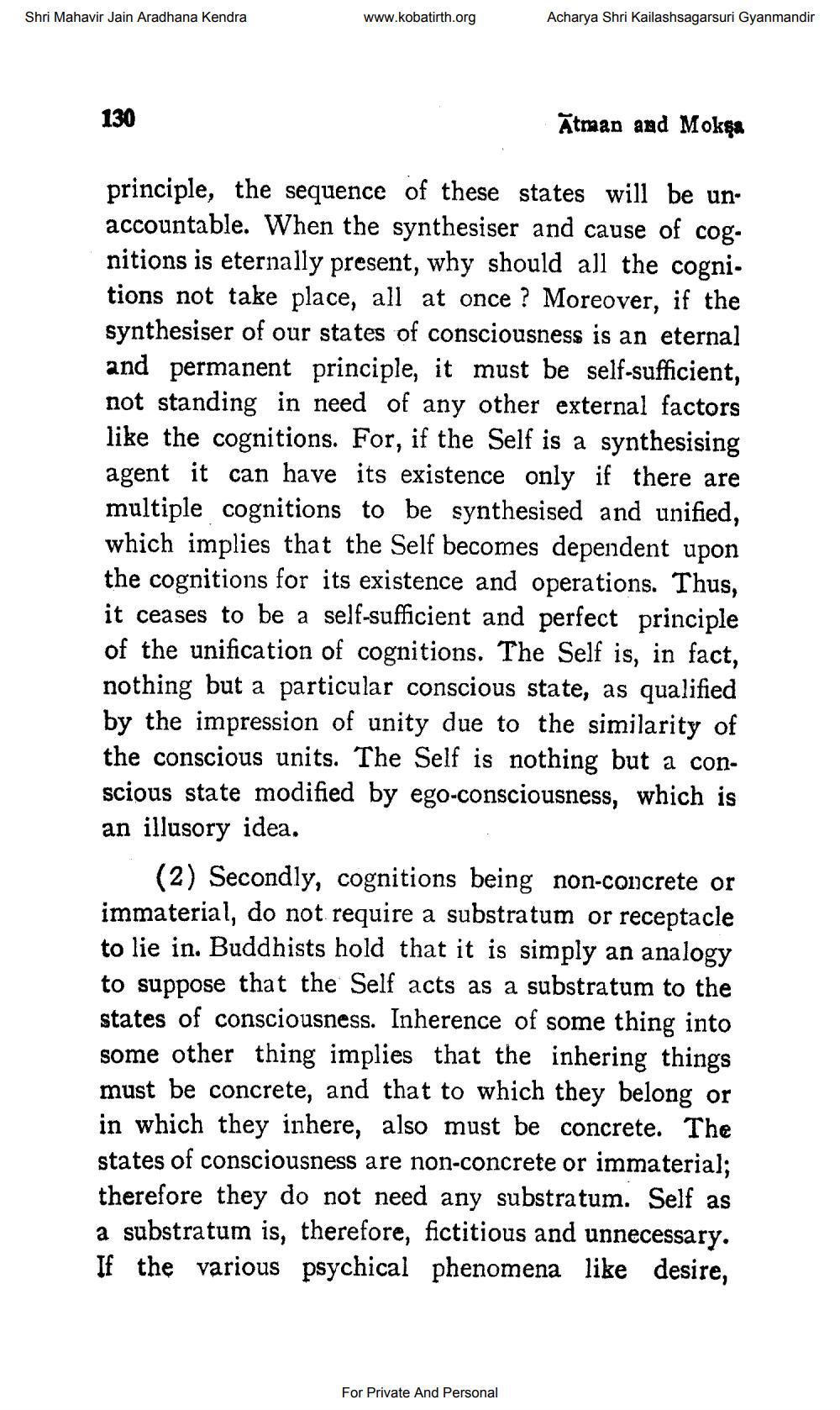________________
Shri Mahavir Jain Aradhana Kendra
www.kobatirth.org
Acharya Shri Kailashsagarsuri Gyanmandir
130
Ātman and Moksa
principle, the sequence of these states will be unaccountable. When the synthesiser and cause of cognitions is eternally present, why should all the cognitions not take place, all at once ? Moreover, if the synthesiser of our states of consciousness is an eternal and permanent principle, it must be self-sufficient, not standing in need of any other external factors like the cognitions. For, if the Self is a synthesising agent it can have its existence only if there are multiple cognitions to be synthesised and unified, which implies that the Self becomes dependent upon the cognitions for its existence and operations. Thus, it ceases to be a self-sufficient and perfect principle of the unification of cognitions. The Self is, in fact, nothing but a particular conscious state, as qualified by the impression of unity due to the similarity of the conscious units. The Self is nothing but a conscious state modified by ego-consciousness, which is an illusory idea.
(2) Secondly, cognitions being non-concrete or immaterial, do not require a substratum or receptacle to lie in. Buddhists hold that it is simply an analogy to suppose that the Self acts as a substratum to the states of consciousness. Inherence of some thing into some other thing implies that the inhering things must be concrete, and that to which they belong or in which they inhere, also must be concrete. The states of consciousness are non-concrete or immaterial; therefore they do not need any substratum. Self as a substratum is, therefore, fictitious and unnecessary. If the various psychical phenomena like desire,
For Private And Personal




